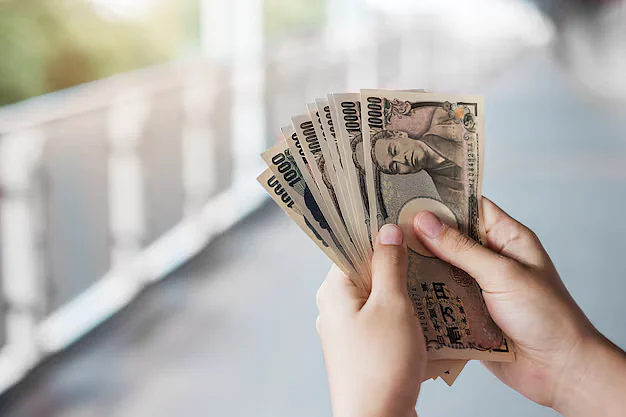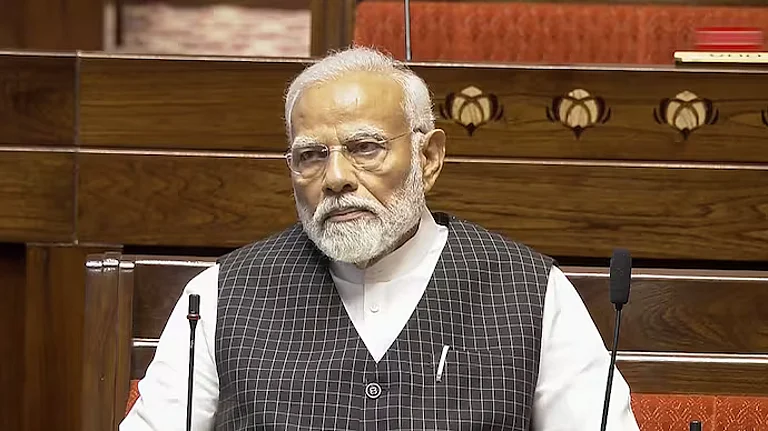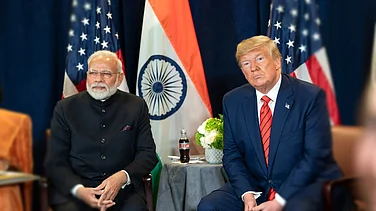
Japan set a target of 10 trillion yen in investments in India over the next decade.
India and Japan finalised a 10-year roadmap to boost cooperation in investment, innovation, economic security, critical minerals, defence, and technology.
The announcements followed summit talks between Prime Minister Narendra Modi and Japanese PM Shigeru Ishiba.
Japan on Friday set an investment target of 10 trillion yen in India over a decade and the two sides firmed up a mega roadmap to bolster cooperation in several key areas such as critical minerals, defence and technology, in decisions that came amid economic turbulence by the Trump administration's policies on trade and tariffs.
The announcements on expanding India-Japan special strategic and global partnership were made following summit talks between Prime Minister Narendra Modi and his Japanese counterpart Shigeru Ishiba.
We have set a target of 10 trillion yen investment in India from Japan in the next 10 years, Modi, flanked by Ishiba, said in his media statement.
The prime minister, who landed in Tokyo this morning, said India-Japan cooperation is crucial for global peace and stability, and both sides have laid a strong foundation for a "new and golden chapter" in the partnership.
We have created a 10-year roadmap for cooperation in a range of areas, including investment, innovation, and economic security, he said.
In his remarks, the prime minister said India and Japan are fully committed to a free, open, peaceful, prosperous and rules-based Indo-Pacific.
Both sides also decided to further strengthen cooperation in the field of the defence industry and innovation.
Concerns of India and Japan regarding terrorism and cybersecurity are the same, Modi said, adding that both sides have shared interests in boosting defence and maritime security.
The India-Japan partnership is rooted in mutual trust, reflects our national priorities and is shaped by our shared values and beliefs, he said.
"Strong democracies are natural partners in shaping a better world," he said.
In his remarks, the Japanese prime minister said both sides need to take advantage of each other's strengths to deal with next-generation challenges.
































